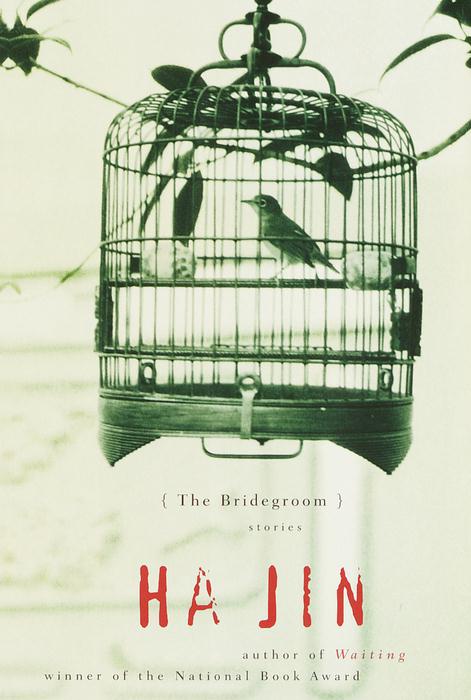
The Bridegroom
Stories
کتاب های مرتبط
- اطلاعات
- نقد و بررسی
- دیدگاه کاربران
نقد و بررسی

Starred review from October 2, 2000
It's difficult to think of another writer who has captured the conflicting attitudes and desires, and the still-changing conditions of daily life, of post-Cultural Revolution China as well as Ha Jin does in his second collection, which follows his NBA-winning novel, Waiting. These 12 stories attain their significant cumulative effect through spare prose penetrated by wit, insight and a fine sense of irony. One realizes in reading them that while human nature is universal, China's cultural and political repression exacerbates such traits as fear of authority (and the desire to circumvent it), male chauvinism and suspicion of outsiders. In "The Woman from New York," a young wife and mother who goes to the States for four years finds, on her return to Muji City (where most of these tales are set), that her child, her marriage, her job and her honor are forever lost. American business methods clash with Chinese traditions in "After Cowboy Chicken Came to Town," in which Chinese workers' anger about the behavior of their boss, Mr. Shapiro, is redoubled when they discover one of their own countrymen practicing the strange ethics of capitalism. Such varied protagonists as college professors, a factory worker, a horny cadre member, two uneducated peasants and a five-year-old girl illustrate the ways in which hardship, lack of living space, inflexible social rules and government quotas thwart happiness. The title story is perhaps the most telling indication of the clash of humanitarian feeling and bureaucratic intervention. The protagonist, who has been taught to believe that "homosexuality... originated in Western capitalism and bourgeois lifestyle,'' is unable to credit his own sympathy for his son-in-law, who is sent to a mental hospital to cure his "disease." Ha Jin has a rare empathy for people striving to balance the past and the future while caught on the cusp of change.

September 1, 2000
Ha Jin follows up his National Book Award-winning novel, Waiting, with a collection of a dozen short stories dealing with political and human relations in China. In the opening work, "Saboteur," a newly married man is imprisoned and in an act of vengeance later becomes responsible for an outbreak of acute hepatitis that ultimately affects over 800 people and kills six. In the title piece, a gay man deceptively marries a rather homely and obtuse young woman, leaving her guardian to struggle with the consequences. "Entrepreneur's Story," a tale of class and greed, tells of a temporary brick layer who recalls being told by his sweetheart's mother that "she'd rather throw her daughter into a sewer" than to let him marry her. Two pieces in which Jin intertwines humor into otherwise intense stories are "A Tiger Fighter Is Hard to Find," in which a movie company pits an actor against a fierce tiger in a quest for realism results, and "After Cowboy Chicken Came to Town," which describes how a Texas-based fried chicken franchise affects the Chinese with its capitalistic ways. Jin uses this collection to exhibit his strong writing and storytelling skills with his laconic use of words. Recommended for most larger public, academic, and Asian literature collections. [Previewed in Prepub Alert, LJ 6/15/00.]--Shirley N. Quan, Orange Cty. P.L., Santa Ana, CA
Copyright 2000 Library Journal, LLC Used with permission.

September 15, 2000
Fans of Ha Jin's " Waiting," the 1999 National Book Award-winning novel, will welcome these dozen stories about ordinary men and women living in contemporary China. The author's deliberately flat writing style, with simple sentences, few metaphors or similes, and no play on language, is in sharp contrast to the complicated and often difficult lives of his characters. Many of the stories take place in Muji, where " Wait"ing was set, and like " Waiting "explore his characters' painful experiences living in a country constrained by rule-bound bureaucrats: in other words, men and women fearful of change and jealous of their positions. The opening story, "Saboteur," is about Mr. Chiu, a mild and inoffensive university professor and upstanding citizen, whose unjustified arrest for attacking a policeman turns him into a killer. Other stories explore the effects of being different in a society suspicious of abnormal behavior, and several portray large and small tragedies in a humorous way. Altogether, this is a fine collection, sure to be in demand by fans of literary fiction.(Reprinted with permission of Booklist, copyright 2000, American Library Association.)

























دیدگاه کاربران